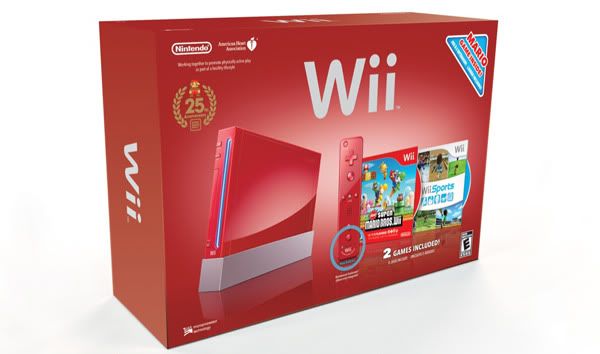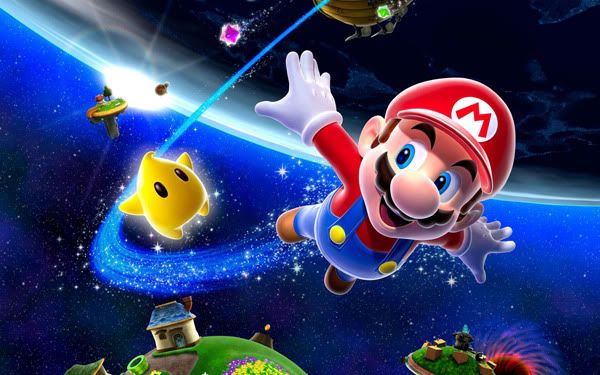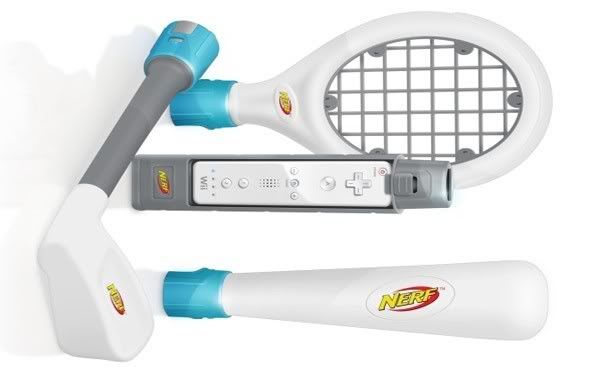This post has not been edited by the GamesBeat staff. Opinions by GamesBeat community writers do not necessarily reflect those of the staff.
Well, here we are at the bottom end of another Nintendo five-year plan. That's about as long as Team Mario waits before launching a new platform, and multiple reports suggest they're bang-on schedule to unveil their sixth gaming console at E3 2011. And here I am, hoping it's not the Wii 2, because that would be the absolutely worst thing Nintendo could possibly do.

Or I guess you could just paint it a new color and call it good….
Let's be honest…as a hardcore gaming console, the Wii's a bit of a bust. Oh, it's seen some good games — really, REALLY good, arguably best-of-all-time contenders — but I doubt that list goes far over 10 titles to cover five years of soak time. Really, it's because the Wii came to serve two distinct markets — casual and hardcore — and like it or not, the former category usurped the latter. Those casual players shot Wii sales into the stratosphere, maybe even doubling the numbers, but nobody at Nintendo can realistically expect to catch that lightning in a bottle again.
So if they're smart, they won't try. They've already got the lightning and the bottle, and it doesn't need a successor. It needs an alternative. Nintendo's new console, codenamed Project Café, and the Wii should exist right alongside each other as fully supported, parallel platforms. Pass the Wii off completely to the casual market. Make Café specifically for hardcore gamers.
Sound crazy? You're wrong. It's the only way forward that makes sense. Here's why.
Nintendo President and CEO Satoru Iwata's talked about the Wii's problematic dichotomy in virtually every keynote he's given since 2008, but a solution's eluded his company for years. Casual buyers sucked in by Wii Play rarely scaled up to Super Mario Galaxy. They also only bought one or two games a year, while the Nintendo faithful who'd cheerfully scoop up six or more per annum couldn't find that many titles worth buying. Keep in mind, the real money's made in software. Developers almost unanimously went after that casual-player cash, then walked away from the platform when it didn't flow as freely as expected.
Iwata then proposed making "bridge" games designed to appeal to both demographics, but that proved a tough needle to thread. Only Mario Kart Wii (over 26 million units sold) crossed the divide. Check out its TV spots and you'll see why…not a single one mentions Mario or any other Nintendo character.
The next logical step? Pare off those markets entirely.
And it's a wise move to do it while bumping up a technological generation. Casuals won't pony up for a new console while they're still enjoying their Wii, so who is Café for? Gamers. People who still have their old SNES in a closet somewhere and want more muscle under the hood than the Wii provides.

Opposite World 4-1: 70 million people own a Nintendo console but not a Super Mario game.
Now, I don't honestly know if it's economically feasible to support two console platforms (plus handhelds) at once, but the Wii can pretty much run on cruise control at this point. Demand's tapered off, prices have dropped, and Iwata's "evergreen" titles are still plenty green. Wii Sports Resort and Wii Fit Plus, both released in 2009, continue to rank in the top 10 list of worldwide game sales on a weekly basis. Feed the casual base a Wii Fittest or a Wii Play Some More at decent intervals, and they're good.
Meanwhile, core gamers left. Stat-tracking giant Nielson released numbers in 2008 showing that of the current-gen consoles, the Wii had the lowest percentage of active users, average session time, and average days of usage. It even lost out to the last-gen Xbox. More recently, when Nintendo finally shifted focus back to their fans and released a slate of franchise entries, they didn't fare as well as they should've. Super Mario Galaxy 2 only sold six million units, or about 2/3rds what its predecessor did. A-list sequels usually do better, not worse. Donkey Kong Country Returns moved a respectable 4.6 million units, but then Kirby's Epic Yarn couldn't do better than 1.2 million. Metroid: Other M fizzled well before reaching seven digits.
That's out of 86 million Wiis out there in the world. Hell, even Wii Music managed a three-million-unit tally, and it's the red-headed stepchild of the Wii-branded casual line. The rest start above the 18-million mark and skyrocket from there.
So yeah, the Wii belongs to the casual market now. It's time to give hardcore Nintendo gamers their own console…something they and third-party developers can believe in.

Also? No more f**king controller brackets.
One more thing to consider: Unlike the 360 and PS3, the Wii sold at profit from day one. I'll take Project Café's rumored specs with a mountain of salt for now — touchscreens on the controller sounds fairly nightmarish to me — but an HD-capable box with a current-to-next-gen processor will sell at a loss, period. The thing is, Nintendo can afford to step out on that limb. And if the Wii and its catalog continues to sell to people who don't know or care who Zelda is, that dramatically softens the pain of a console launch. It won't matter to investors if Café doesn't pull in Wii-sized numbers, because the Wii itself is still in the game.
But none of that happens if Café turns out to be the Wii 2. A beefed-up repeat can't magically generate the confidence necessary to pull tepid gamers and developers back. After all, they got burned by misplaced enthusiasm before.
I'm giving Iwata the benefit of the doubt for now. He's a smart guy, and he knows the way forward doesn't include simple repetition. I'm not saying Project Café can't have motion control — the Wii could've been a hardcore platform; events just didn't play out that way — but it must innovate in completely new ways…ways geared precisely to Nintendo's core audience.
Because this time, nobody else will show up.
Sales data courtesy of Video Game Chartz.
